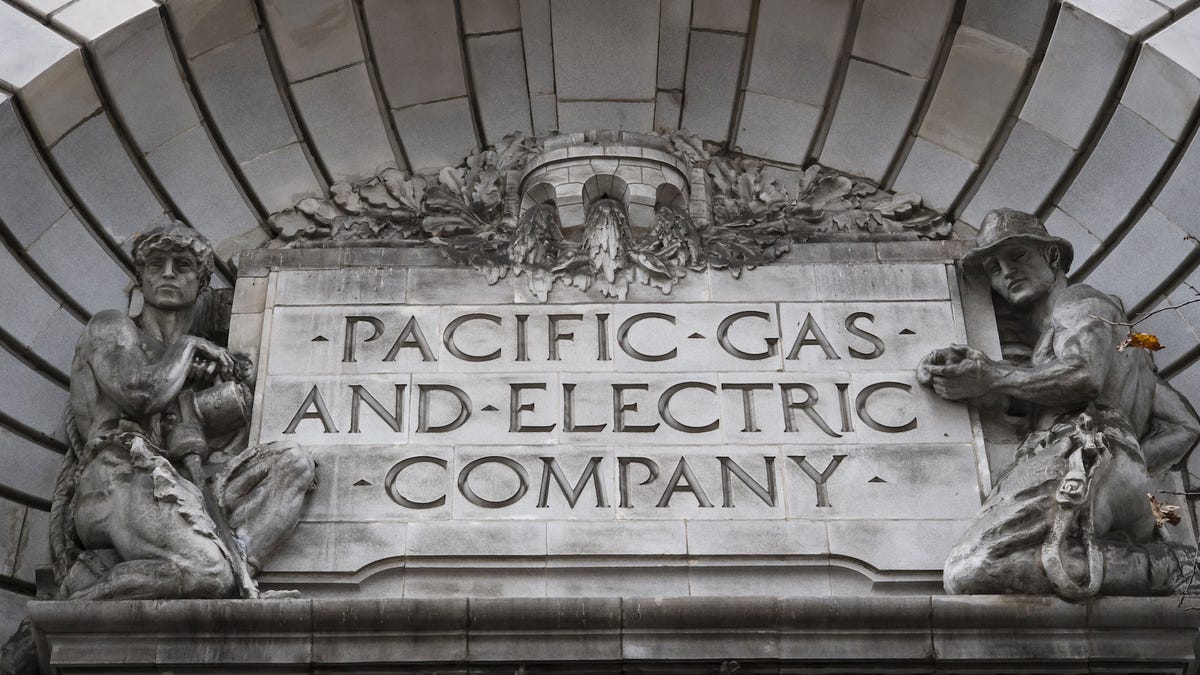If you live in California, how much you pay for electricity will soon be tied to much you earn. A state law passed last summer requires the California Public Utilities Commission, or CPUC, to approve a pricing structure that incorporates a flat fee with a sliding scale based on income.
Currently, Californians pay for the energy they use and the cost of upgrading the grid, settling lawsuits related to wildfires and providing assistance to low-income customers is built into the per-kilowatt-hour price.
Under the new system, however, funds for these programs would come from "income-graduated fixed charges."
Proponents say the change is needed because, as energy prices continue to increase in the state, poorer households are seeing a bigger chunk of their paychecks going toward repairing California's aged energy infrastructure.
It's an unprecedented move: In an April blog post, energy economist Ahmad Faruqui said more than 170 investor-owned utilities nationwide incorporate a fixed rate -- the median being $10 and the highest $40.
None has an income-based component.
Legislators left exactly what this new system would look like -- and how customers' income would be verified -- up to the CPUC, which put the call out for proposals.
The law affects customers of California's three largest investor-owned utilities -- Pacific Gas & Electric, Southern California Edison and San Diego Gas & Electric. Combined, they service approximately three-quarters of the state.
The utilities jointly proposed a plan that would "support affordability and increased bill stability," according to their testimony to the CPUC.
It incorporates four income tiers, starting at the federal poverty level for a family of four. Because they're different sizes and cover different regions, each company would charge their customers a different dollar amount.
The retail price for electricity in California is among the highest in the nation. In March, the average per-kilowatt-hour rate was about 27 cents, almost double the national average.
With a fixed charge in place, SCE estimates its customers' per-kilowatt-hour rate will decrease by about a third, KTLA reported.
SDG&E customers, who pay the highest price for electricity in the continental US, will reportedly see their rate drop by 42%.
"This is really about taking our existing rates and really changing how electricity is priced for customers," SDG&E senior vice president Scott Crider told KPBS. "To make it simpler, to make it more predictable and to really create that saving for low-income customers."
Lower- and middle-income customers will see savings right away, Crider said. Many high-earners will eventually benefit, he added, as the popularity of electric vehicles and heat pumps increases.
But Faruqui warned the plan would punish customers who use less electricity, especially higher earners.
"They would be penalized for using less energy, which is the opposite of the state's goal to use energy efficiently," he wrote. According to Faruqui's calculations, a household in the highest bracket now paying $50 a month would see their bill soar 140%.
"Millions of customers fall in this category," he added. "Many spent thousands, if not tens of thousands of dollars, to make their house energy efficient and to supply it with self-generated solar energy. Their investment will be rendered wasted."
Andrew Gong is a research engineer with Aurora Solar, a software company that develops rooftop and commercial photovoltaic systems.
Gong said it would be "unfortunate" if the power companies' costlier plan was chosen, "but we're not worried."
"It may take longer to pay back, but solar will still be a good value for most homeowners," he added.
The commission is looking at almost a dozen proposals. The Utility Reform Network (TURN), a nonprofit advocacy group, pitched a more modest flat fee that would average out to about $36 a month for all customers.
The Sierra Club's proposal would come to, on average, $28 for PG&E customers, $37 for SCE customers and $30 for SDG&E customers. The environmental group has historically opposed flat fees.
"It discourages energy conservation and efficiency," Sierra Club attorney Rose Monahan told Canary Media. "And if you have a high fixed charge, it can discourage people from investing in rooftop solar or a battery."
Whatever system is chosen, it could be in place by 2025: According to a spokesperson for the CPUC, an administrative law judge should issue a decision on the proposals in the first quarter of 2024. The CPUC board then has until July to approve the plan or come up with its own.

 www.cnet.com
www.cnet.com
Currently, Californians pay for the energy they use and the cost of upgrading the grid, settling lawsuits related to wildfires and providing assistance to low-income customers is built into the per-kilowatt-hour price.
Under the new system, however, funds for these programs would come from "income-graduated fixed charges."
Proponents say the change is needed because, as energy prices continue to increase in the state, poorer households are seeing a bigger chunk of their paychecks going toward repairing California's aged energy infrastructure.
It's an unprecedented move: In an April blog post, energy economist Ahmad Faruqui said more than 170 investor-owned utilities nationwide incorporate a fixed rate -- the median being $10 and the highest $40.
None has an income-based component.
Legislators left exactly what this new system would look like -- and how customers' income would be verified -- up to the CPUC, which put the call out for proposals.
The law affects customers of California's three largest investor-owned utilities -- Pacific Gas & Electric, Southern California Edison and San Diego Gas & Electric. Combined, they service approximately three-quarters of the state.
The utilities jointly proposed a plan that would "support affordability and increased bill stability," according to their testimony to the CPUC.
It incorporates four income tiers, starting at the federal poverty level for a family of four. Because they're different sizes and cover different regions, each company would charge their customers a different dollar amount.
The retail price for electricity in California is among the highest in the nation. In March, the average per-kilowatt-hour rate was about 27 cents, almost double the national average.
With a fixed charge in place, SCE estimates its customers' per-kilowatt-hour rate will decrease by about a third, KTLA reported.
SDG&E customers, who pay the highest price for electricity in the continental US, will reportedly see their rate drop by 42%.
"This is really about taking our existing rates and really changing how electricity is priced for customers," SDG&E senior vice president Scott Crider told KPBS. "To make it simpler, to make it more predictable and to really create that saving for low-income customers."
Lower- and middle-income customers will see savings right away, Crider said. Many high-earners will eventually benefit, he added, as the popularity of electric vehicles and heat pumps increases.
But Faruqui warned the plan would punish customers who use less electricity, especially higher earners.
"They would be penalized for using less energy, which is the opposite of the state's goal to use energy efficiently," he wrote. According to Faruqui's calculations, a household in the highest bracket now paying $50 a month would see their bill soar 140%.
"Millions of customers fall in this category," he added. "Many spent thousands, if not tens of thousands of dollars, to make their house energy efficient and to supply it with self-generated solar energy. Their investment will be rendered wasted."
Andrew Gong is a research engineer with Aurora Solar, a software company that develops rooftop and commercial photovoltaic systems.
Gong said it would be "unfortunate" if the power companies' costlier plan was chosen, "but we're not worried."
"It may take longer to pay back, but solar will still be a good value for most homeowners," he added.
The commission is looking at almost a dozen proposals. The Utility Reform Network (TURN), a nonprofit advocacy group, pitched a more modest flat fee that would average out to about $36 a month for all customers.
The Sierra Club's proposal would come to, on average, $28 for PG&E customers, $37 for SCE customers and $30 for SDG&E customers. The environmental group has historically opposed flat fees.
"It discourages energy conservation and efficiency," Sierra Club attorney Rose Monahan told Canary Media. "And if you have a high fixed charge, it can discourage people from investing in rooftop solar or a battery."
Whatever system is chosen, it could be in place by 2025: According to a spokesperson for the CPUC, an administrative law judge should issue a decision on the proposals in the first quarter of 2024. The CPUC board then has until July to approve the plan or come up with its own.

Electricity Bills in California Will Soon Be Based on Income. Here's How It Could Work
Supporters say a progressive fixed rate will ease the burden for lower-income customers. Critics say it will deter interest in energy efficiency.




